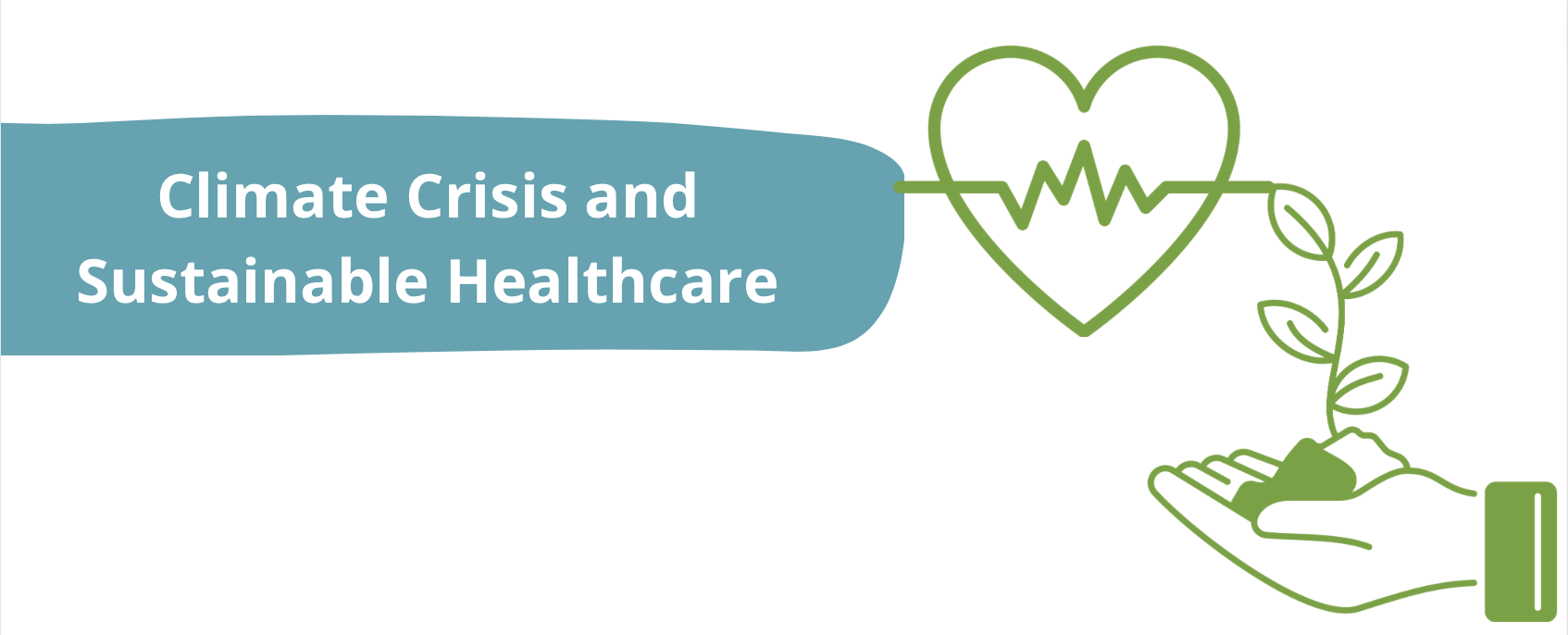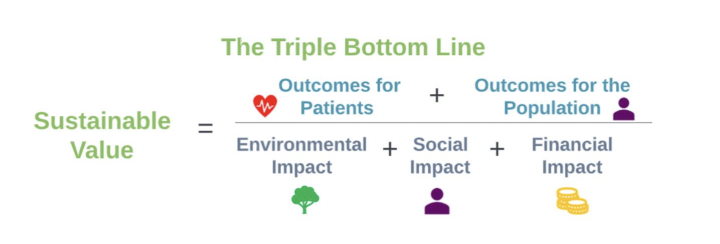
Climate crisis and sustainable healthcare: when unions stand up for the workers in times of trouble
Action to tackle climate and ecological breakdown could improve the health, wellbeing, and standard of living for us all, but how exactly can tackling environmental issues help with societal health and social inequality? And how exactly can unions help with that?
Following her talk for UNISON entitled "Why Greening the NHS matters for all of us", Dr Hayley Pinto, Education and Training Lead here at the Centre for Sustainable Healthcare, is reflecting on the climate crisis and its links with sustainable healthcare.
Currently, we are in a lot of trouble. This September, in a webinar for UNISON, the largest UK union with over 1.4 million members, I shared an important message about the trouble we are in, and why collective action could be the only way to address it.
Climate emergencies beyond the environment.
Too many people think of the climate and ecological emergencies as just ‘environmental‘ issues, something that is nice to address if you have time and resources but not a priority when there are so many other problems: poverty, inequality, injustice, war, etc. In this webinar I explained how, in fact, the climate and ecological emergencies are entwined with all these other issues. Air pollution, extreme weather events, spread of infectious disease (including pandemics), impacts on food and water supplies, and sea level rise are affecting the health of populations around the world, increasing poverty and hunger and driving conflict and migration. The brunt of these impacts is being felt first and most severely by those who are most vulnerable – poorer people and countries, women, children, the elderly, people with chronic diseases and disabilities, and BIPOC (black, indigenous, and people of colour) communities. It is the same systems of extraction, overconsumption, oppression, and exploitation which are driving both the environmental catastrophe and the appalling levels of health and social inequality and injustice which exist both nationally and globally.
Helping marginalised communities.
On the other hand, action to tackle climate and ecological breakdown could improve the health, wellbeing, and standard of living for us all, but the greatest benefit would be felt by poorer, marginalised communities. Better access to affordable energy and public transport; infrastructure to support active travel; better diets based on locally grown plant-based nutrition; increased access to good quality green space; better housing standards to reduce heating and cooling costs. These interventions would make a huge difference to our greenhouse gas emissions (and other forms of pollution) whilst also reducing the cost of living for those on low incomes. This would, in turn, reduce the prevalence of lung and heart disease, stroke, obesity, diabetes, and mental health conditions—the epidemic of non-communicable diseases driving the unacceptable disparity in life expectancy (and healthy life expectancy) between the most and least deprived.
Currently, the climate and ecological crises are widening social and health inequalities, both nationally and globally. Tackling it could shrink them. True sustainability is not just about the ‘environment’. It’s also about financial sustainability and social justice. That is why, at the Centre for Sustainable Healthcare (CSH), we identify prevention as the most powerful of the principles of sustainable healthcare and promote the use of the sustainable value equation in decision-making, which ensures all these elements are measured—the triple bottom line.

How can unions help improve sustainable healthcare and tackle the climate crisis.
It is only through understanding how these issues are linked that we can engage a broad enough coalition to push for the changes we need to make within the timeframe determined by physics. We are nearly out of time to prevent catastrophic changes to our planet that threaten our most basic needs: oxygen, fresh water, and food. Trade unions have power and a proud history of using that power to protect the rights of workers. The right to a habitable planet is surely the most important right, and achieving it could also improve the living standards and health of workers and vulnerable communities. If they chose to wield it, the power of the unions could tip the balance, steering us away from the road to disaster towards the most exciting transformation for social justice in human history. Only by working together can our voices be heard.
Many thanks to Green Unison for organising this event which was part of Green UNISON week.
About Hayley’s talk.
It was a very clear and comprehensive round-up of the impact of the climate crisis on our health and on our NHS including some of the initiatives that are already happening and many that need to happen urgently. We think all our members would benefit from this engaging presentation and have persuaded her to do it all again for us as part of the Green UNISON week offer. » - UNISON
Watch the webinar to learn more.
You can now watch the recording of the meeting and hear Hayley discuss the impact of Climate Crisis on healthcare services, its workers and users.
Putting sustainability at the heart of the NHS: how can you get involved?
As an individual:
- If you want to learn more about what you can do as a healthcare professional, browse our website to find resources, case studies and events
- Join a sustainable healthcare network to collaborate, find resources and events, and learn more
- Join one of CSH’s education short courses in sustainability, health and healthcare
As a trust/board:
- Adopt and influence sustainability practices within your trust/board by having a clear Green Plan that is easily accessible to all staff and patients
- Increase the sustainability knowledge of your healthcare team. CSH provides board level net zero leadership training and offers block booking discounts for organisations who wish for their staff to attend our short courses in sustainability, health and healthcare
- Run a Green Team Competition to transform healthcare by reducing carbon emissions, enhancing patient care and staff satisfaction, and saving money

